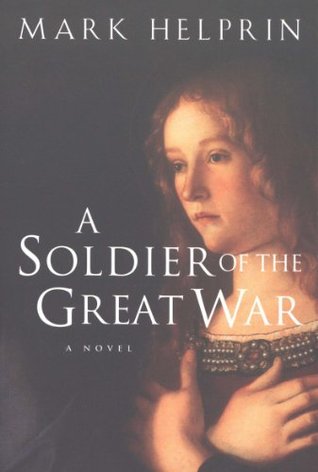More on this book
Community
Kindle Notes & Highlights
he had discovered long before that to defeat pain he had to separate it from time, its most useful ally.
nonagenarian.
“The whole world stops as this stunning dancer rises,” Alessandro said, “and its beauty puts to shame all our doubts.”
The delicacy of her limbs testified that they had not existed long enough for much to gravitate to them.
“If I die tomorrow it will have been useless to have been afraid today.”
“By then she won’t be awed by you, and she’ll have had the opportunity to reject you. You will have had time to prove that you love her not only for what she is now but for what she will be then, and for what she will become.
I think that the closer you are to power, the less you understand of what it is to be alive.”
Why do mechanical variations in rhythm and tone speak the language of the heart?
In war it’s dangerous to be experienced, battle-hardened, and decimated, because you are at once necessary and expendable.
Alessandro jumped from the prow. After a week at sea, he surrendered to it. Wearing only a pair of soot-stained khaki shorts, he longed to float, and it seemed that he flew through the air for hours. His arms were spread in complete abandon, he exhaled, he spun on the wind like a leaf. Then he broke the glassy surface of the sea into fountains of white foam, pulling the air deep down with him until it rebelled and pushed him back up into the wind. The other men hit the water like artillery shells, and as Alessandro dived down, shut his eyes, and did weightless acrobatic turns, he listened to
...more
memory offered little comfort except to those who had not quite understood what they had loved.
THE SEA was warm, and the surf was unusually high for the Adriatic at that time of year. The wind coming off the hills, dry, full of smoke, and seemingly driven by the moon, knocked the crests from the waves as if they were as light as snow. In this kind of beautiful water a swimmer might want to drown, and the heart of the temptation was not so much the quality of sensation but the way the water moved, endlessly rocking, endlessly meeting the wind and falling back, endlessly engaged in a conversation wiser than any act of will.
When Gianfranco di Rienzi thought he was going to be shot in Venice the next day he concentrated upon the moon, the stars, and the bonfires until he seemed almost to float in the light.
Coursing from cloud to cloud, in roseate light, they had escaped, they knew the pure and the abstract and were freed from everything save light, force, and proportion. The waves of air high above the clouds were more hypnotic than waves in the sea. The light was a burst of pink and gold, and the color of the sky ran from China blue to the pale white that held the sun.
problems of the intellect, including political questions, are much the same—puzzles and mazes in which you can meander for the rest of your life, that turn you hither and thither until you sometimes get so dizzy and confused that you don’t know what’s going on. “The barriers in these mazes are like iron fences with sharpened spikes, and they condemn intellectuals to wander, but if an intellectual can jump those fences he can see how the puzzle is laid out. “After the fences I took on Enrico, the problems of political systems do not seem intractable.”
“You, yes, you,” replied one of the two who were assistant professors restricted mainly to words of one syllable, even if they had inestimable quantities of polysyllabic magma beneath their tender crusts, waiting for the chance to erupt into professorhood.
Lightning the color of white gold danced awkwardly on the broken surface of the sea and flashed against the dark skeins of cloud from which it had come, cascading over itself in shallow angles and bent limbs. Thundercracks colliding in midair flattened the water into spoon-like silver depressions and rattled the glass windows of the hotel.
“Or the woman . . . who came in . . . with a baby.” Alessandro did not interrupt. In the habit of being interrupted, the guard echoed his last words. “With a baby.” After a long silence, he said, “And stood in front of the painting, and cried.”
“Ariane left me a letter. Apart from the signs on the street, that I read as I rode home, hers were the first words I saw after she died. It was as if she were speaking to me, and she said, ‘As long as you have life and breath, believe. Believe for those who cannot. Believe even if you have stopped believing. Believe for the sake of the dead, for love, to keep your heart beating, believe. Never give up, never despair, let no mystery confound you into the conclusion that mystery cannot be yours.’”
“And then, suddenly, in Rome, on a calm day in June, she was standing in front of me, in a towel. I held her. . . . I wouldn’t let go. It must have been an hour.
In bayonet training throughout the world, the soldier who wields the bayoneted rifle is ordered to scream as he drives the blade through. Civilians assume that the cry is meant to terrify an opponent, but it isn’t. It’s meant to allow you to bridge your natural reluctance to push a long blade into a living human being, and to cover the horrible sound of steel cutting into flesh and bone.
Perhaps my judgment is too much clouded by fear and too little enlivened by faith and trust.


